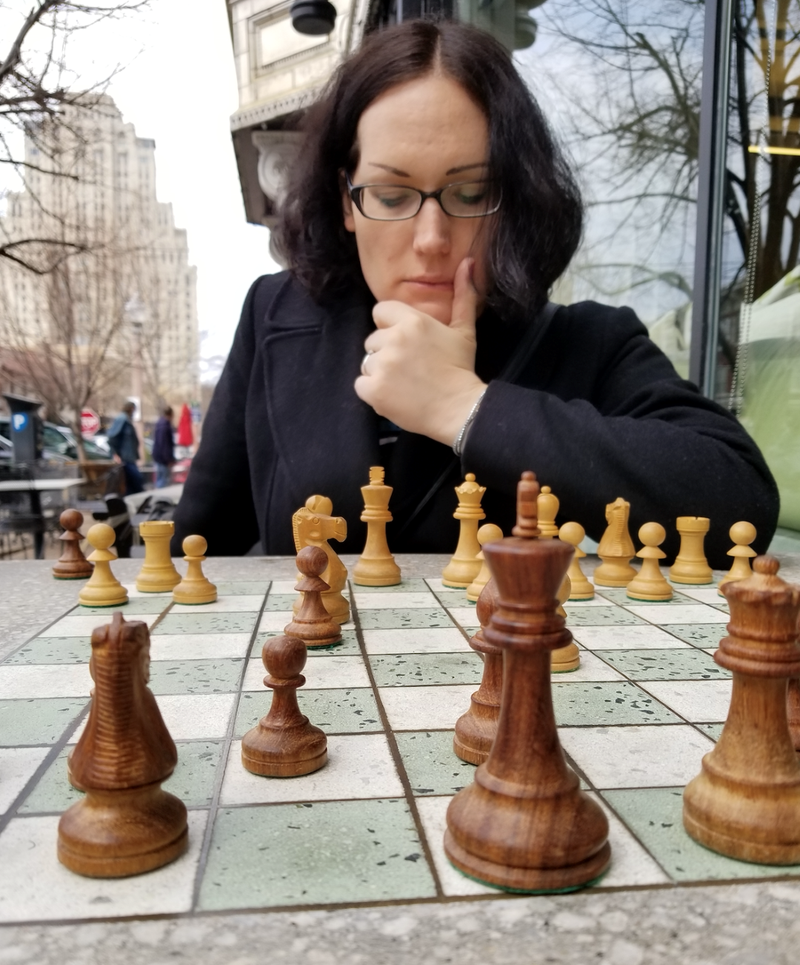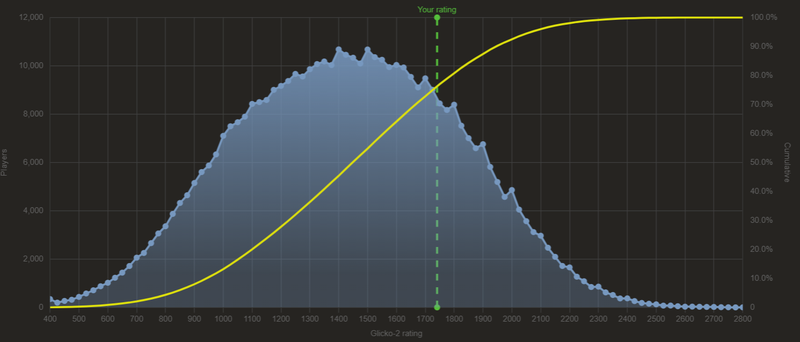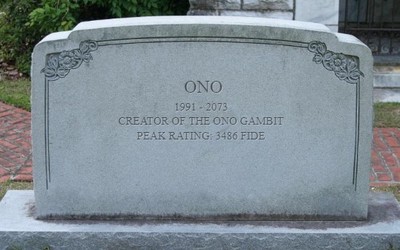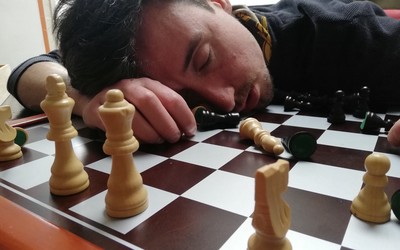
photo by Clay Banks
Learning to Learn
I used to think my time at university, whilst entirely useless so far in my career in terms of subject matter, had one redeeming feature: at least I learned how to learn.But now that I have taught myself chess from scratch as an Adult, I realise that not even that was true.
Perhaps I learned my personal learning preferences. That I seem to absorb information much better in the morning before withering out to practically useless by mid-afternoon. That I can hold my focus longer on video and audio inputs over reading. That taking notes during a lecture made it difficult for me to listen to the lecture itself.
I suppose this gave me a leg up in terms of knowing what resources to choose (video courses over chess books) and when I should study (in the morning).
But I was still approaching the learning of the game from the completely wrong angle.
The Writer Who Never Wrote
At university I dreamed of becoming a writer. This had nothing to do with my degree subject. I just liked writing. I read a lot of fantasy books and I wanted to write a fantasy series or trilogy. And I wanted it to be good.
So I set about learning how to write. My bookshelf behind me, as I sit writing this blog post, has two entire shelves dedicated to books about writing. There are titles on story structure, sentence structure, character building, world building, and I read them all.
Guess what I didn’t do?
Write.
I wrote next to nothing. Every few months or so, on a burst of inspiration, I’d put 10k words down. A small dent in the ‘War and Peace’-sized tombs of the fantasy novels I wanted to emulate.
Over a period of about a decade (from 15 to 25 years old) in which I was sure I wanted to achieve my childhood dream of becoming a writer, I wrote three and a half novels each roughly the size of the first Harry Potter book.
I liken this to studying chess for a decade and playing a single correspondence game spanning the same time period.
You would play your way through the opening, perhaps consuming every Hanging Pawns playlist and a few Chessable Lifetime Repertoires along the way.
You’d get out of the opening safely and find yourself in some identifiable pawn structure (unlikely but let’s play along).
You’d pause and seek out every bit of literature you can find on said middlegame structure and read it all before entering the middlegame armed with the knowledge of which pieces go where, and all the plans and thematic pawn breaks.
As you trade down into an endgame of a particular type, you stop again and diligently research all the theory and strategy.
And at the end of the decade, you might have completed this single game and be no better at playing chess than you were at the beginning of the decade.
Short Stories = Rapid Training Games
When I have achieved what I want to achieve in chess (and I’m still not exactly sure what that ambition is), I would like to return to writing. And I will return to that much more equipped to succeed in my dream of publishing a good fantasy series because of my experience in trying to master this ridiculous board game.
I realise now, that in order to become a great writer I will need to...
Wait for it...
Write.
I will need to write.
I will need to write words.
I’ll use short stories and novellas like rapid training games. Not caring about the result, but the learning outcome.
I’ll focus my attention on one aspect of my play. On drawing a character. On building tension. Just like I might focus my rapid games on a specific goal - like getting out of the opening with a reasonable amount of time left on my clock. Or focusing only on making sure I do my own personalised blunder check on every move.
I’ll take my win through process and practice, not in results. At least not initially.
This isn’t the time to write the perfect novel, just as this is not the time to play the perfect game or reach a peak rating.
This is the time to learn how to write, just as it is the time to learn how to play chess.
The Rise-Fall-Rise of Stacia Pugh
I take a lot of inspiration from the first person I ever reached out to to ask about chess improvement: Stacia Pugh. She was the first Adult Improver interviewed on the Perpetual Chess Podcast.
She was playing system openings as white and black and made an impressive and fast climb as an adult to 1800 USCF.
And then her coaches told her that might be as far as she ever gets, because she would never learn about the open game, about old-school e4-e5 chess.
And so she changed everything. Result? She dropped about 300 rating points.
But she also understood that her goal wasn’t to be as high-rated as she possibly could be right now. Her goal was to be as good at chess as she possibly could be in a lifetime.

That meant a temporary but long rating dip. Stacia didn’t suddenly get worse at chess overnight, she consciously chose to practise a different writing style. One that she fully intended to abandon at a later date. That writing style taught her a key element of writing that she wouldn’t have had access to if she never made the switch.
Result? Stacia not only climbed her way back to her old peak rating, but she rose above it - with an invaluable new set of chess skills.
You can keep up with Stacia's chess by checking out her YouTube channel.
Practise the Sex Scene/Gambits
Say you are a fantasy writer. Most fantasy books don’t have too much romance in them. Maybe the main character has a relationship or two develop and fade. But they tend to be subplots. So as a fantasy writer you probably don’t get much experience in writing convincing and believable relationships or romantic plot lines.
But I now know I should probably spend a chunk of time writing romance novels. Exclusively.
Romantic short stories written; like gambits played in rapid games. The Stafford Gambit, practised like the writing of full-on erotica so that if my eventual fantasy novel requires one good sex scene I can draw on the six months I wrote nothing but Fifty Shades of Grey-esc smut.
And if I blunder a pawn in a terrible opening I can now have a Stafford-based hope of recovery.
Humour aside, experience in writing many relationship plot arcs will mean I am not out of my depth writing them in a novel where that isn’t the main thing going on. Just as in chess we often find ourselves in positions we are unfamiliar with according to our styles. Those occurrences of unfamiliar structures and positions may be rare, but we still need to know how to navigate them.
Suppose your chess style doesn’t result in a lot of endgames, but you did take some time to study and practise and spar in various endgame positions. Then despite their rarity when you do find yourself in one, you’ll know what you're doing.
You might not shine through foreign territory, but it won’t tear your whole ending apart George Martin style (at least he has the books to save that position).
Knowing What It Takes
And so speaking of endings, let’s wrap this up.
My chess journey has lasted just over 3 years at the time of writing. In that time I haven’t quite been able to dedicate myself to it fully (see migrating to two different countries, moving 10+ times including to a tent, having one child, and setting up two businesses for details).
I have taken my three-digit online rating to over 1600 OTB (which is apparently now meaningless or shrouded in mystery due to the FIDE adjustments). But let’s say 1600 pre-adjustments. Either way. I’m now a ‘club player’ (who’s clearly still learning) somewhere around the middle of the chess bell curve:

According to statistics from all over the web, publishers publish and agents accept around 1-2% of books they receive for publication or representation.
Comparatively, to get into the top 2% of players on Lichess you need a rapid rating of 2200, or a blitz rating of 2275.
Now I think that classical over-the-board chess will always offer the so-called Adult Improver the best chances to reach a higher percentile: I’m much lower-rated in rapid and blitz than I am in classical when compared to my rating peers.
This statistical anomaly is often used to identify cheaters online. But almost all ‘Adult Improvers’ (people who learned or took up the game as adults) will report similar rating disparities as me (sorry Vlad).
Anyway, do I think I can enter that 1-2% percentile in my lifetime?
Yeah. I do.
But I realise now what it takes. I’ll need to work really hard. I haven't invested much time to study and practise chess over the last three years. Maybe 30-60 minutes a day on average. And sure I haven’t made an astronomical climb. But I have turned up everyday and done my best. And if you told little old 700 me I'd be 1600 in three years I’d have taken it.
And I think if I can keep doing what I have been doing, then at the end of a decade of work I might just sneak into that top 1-2% of chess players. And I think that if I can do that, I can distil those lessons from learning chess - and apply them to learning anything.
And I know for me that the next thing will be writing. Probably some kind of The Queen’s Gambit meet’s The Kingkiller Chronicles chess fantasy crossover. That’ll be my legacy.
I feel like I know how to get there now, because I’ve learned how to learn. And I know how hard I’ll have to work to reach that goal.
I can’t just learn about chess (and write about it on this blog). I have to actually play chess. A lot.
How are you learning chess? Let me know in the comments.
If you’re an Adult Improver and you’d like a coach to help you with your learning approach, you’re welcome to book a free trial lesson with me here.
Want to see me practise in real time and learn out loud? I’ve started streaming rapid training games on Tuesdays and doing an analysis of my classical OTB games on Thursdays (Tuesdays + Thursdays starting at 1800 UTC). Follow me on Twitch to watch my games and analysis.
For more resources to support your adult chess improvement, go to my website www.theonozone.com. Here you’ll find a free template to make your very own Chess Study Plan. You can also download my Wordy Book List with chess books for Adult Improvers who aren’t fluent in chess lingo just yet (and need actual words to understand what’s going on).
Every other week I also host a live hangout on Zoom. All Adult Improvers welcome for a chat about chess. Sign up to my Patreon page to get the link (there is a free trial).
Many thanks to Patrons of TheOnoZone for their support: Benjamin Portheault + Rick Choplan + Tim Everett + MatthewKCanada + Brett + Nate + Laura + Marcus Buffett + Dan Bock + Dawn Lawson + Glen G + Mikey Wells + Michael Shpizner + Karen W + Gregory C + BowiE + Yara V + Stefan K + Ché Martin + Ben Johnson.




